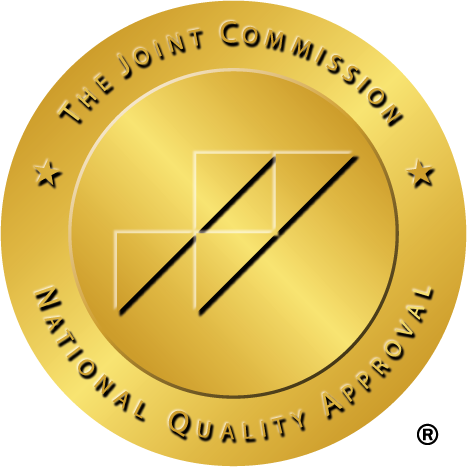Understanding the intricacies of the human mind isn’t something that can be done through observation alone. So while psychiatrists conduct interviews and observe behavior during sessions with patients, they rely on laboratory tests to help arrive at an accurate diagnosis and determine appropriate treatment options.
Although not all psychiatric conditions require lab tests, certain situations require specific tests to help rule out potential medical contributors to symptoms or determine the best course of treatment.
SPEAK WITH AN ADMISSIONS COUNSELOR TODAY
The Purpose of Laboratory Tests for Psychiatric Patients
Psychiatric laboratory tests are a critical diagnostic tool in mental health disorders.[1] Since mental health disorders can be challenging to treat because they don’t have a physical manifestation like other illnesses, psychiatric tests in a laboratory become critical in detecting the presence of these disorders.
Below are some common lab tests used to aid in the diagnosis and treatment of mental health conditions:
1. Mental Health Diagnosis
Laboratory examinations are instrumental to accurate diagnoses of psychiatric patients. Comprehensive analyses can illuminate underlying physiological, genetic, and environmental influences on disorders ranging from depression and anxiety to bipolar disorder, schizophrenia, and substance abuse.[2]
By scrutinizing the biological components of mental illness, clinicians gain insights critical to customizing treatment plans that target root causes and not merely symptoms. Through precision and objectivity, laboratory science is a bedrock for progressive psychiatric care.
2. Medication Management
Psychiatric laboratory tests help clinicians to determine the proper medication and dosage for treating mental health disorders. To maximize treatment effectiveness while minimizing harm, psychiatrists closely monitor patients on psychotropic medications. Sophisticated lab tests evaluate drug levels and side effects, enabling clinicians to calibrate dosages or substitute alternative compounds as needed precisely.
By personalizing pharmacotherapy based on each individual’s unique biochemistry, doctors can optimize outcomes for those struggling with mental illness.
3. Health Monitoring
Mental health conditions often manifest themselves through both psychological and physiological symptoms. For example, patients suffering from afflictions such as depression may experience disruptions to their sleeping and eating habits and a depletion of energy and motivation.
In addition, medications prescribed to alleviate these disorders can also negatively impact physical well-being, with side effects ranging from weight fluctuation to cardiovascular complications.
Therefore, comprehensive psychiatric care must take a holistic approach, utilizing laboratory examinations and other diagnostic measures to identify and address any co-occurring physical health issues, ensuring the wellness and safety of those under treatment.
4. Outcome Measurement
Psychiatric laboratory tests can objectively measure the outcomes of a specific mental health treatment. Various biological markers in the body correlate with the severity of mental health disorders when adequately measured. By tracking these biomarkers, clinicians can determine the effectiveness of current medication or treatment approaches and adjust them to suit the patient’s needs.
5. Predictive Diagnosis
Genetic profiling can foretell the emergence of debilitating psychiatric conditions. For instance, a simple blood test can reveal the existence of a gene known to elevate the risk of schizophrenia, enabling early intervention before the onset of symptoms.
Far from being repetitive science fiction, these predictive practices are increasingly part of mainstream medical diagnostics. If someone’s family has a history of mental health disorders, it is essential to take laboratory tests and use the results to start early treatment. Early intervention can prevent the severe effects of mental health disorders in the long run.
Common Lab Tests in Psychiatry
There are various laboratory tests used in psychiatry. These tests are used to diagnose mental health disorders, monitor treatment outcomes, and predict the onset of illnesses. Some of the common psychiatric laboratory tests include:
Complete Blood Count (CBC)
A comprehensive analysis of the cellular components of the blood, known as a complete blood count or CBC, offers psychiatrists valuable insight into their patients’ overall health. By revealing levels of red and white blood cells and platelets, this routine test can detect conditions like anemia or infection that may masquerade as psychiatric disorders or exacerbate symptoms.
Due to this, the CBC is one of the most frequently ordered laboratory studies, helping psychiatrists discern biological contributors to mental distress.
Thyroid Function Tests (TFTs)
The thyroid gland delicately regulates a symphony of bodily functions through the precise release of crucial hormones that impact metabolic performance. Therefore, physicians closely monitor thyroid stimulating hormone levels via routine blood tests, measuring hormones such as thyroxine (T4) and triiodothyronine (T3) to ensure proper functioning and intervene when the thyroid’s crucial equilibrium is disrupted.
Deviations from normal baseline levels of these potent chemicals can have significant consequences, including hypothyroidism. Depression, fatigue, and cognitive difficulties are a few of the potential manifestations of dysfunctional thyroid hormone regulation.
Additionally, psychiatric laboratory tests may include assessments of cortisol levels, a hormone associated with the body’s stress response. Dysregulation of cortisol levels has been linked to various psychiatric disorders, such as depression, anxiety, and PTSD. By measuring cortisol levels through blood tests, saliva tests, or urine tests, clinicians can gain insights into the individual’s stress response, which could aid in the diagnostic process.
Liver Function Tests
The liver metabolizes many medications used in psychiatry, including antidepressants and antipsychotics. Thus, monitoring liver function regularly in patients receiving these types of medications is crucial. In addition, liver function tests can help detect liver damage before it becomes severe. The tests can also reveal the underlying reasons for symptoms like fatigue, loss of appetite, and nausea.
Kidney Function Tests
A comprehensive diagnostic assessment for mental illness involves evaluating psych factors and physical health conditions that could exacerbate or mimic psychiatric symptoms. For example, issues with kidney function, such as poor filtration or inadequate fluid balance, have been associated with mood disorders like depression and anxiety.
By monitoring markers of kidney function through urinalysis, such as blood creatinine and urea nitrogen levels, psychiatrists can identify any underlying physiological contributors to or complications of a patient’s mental disorder.
Early detection of renal dysfunction allows for prompt treatment to prevent progressive deterioration and secondary illnesses, thereby optimizing the effectiveness of psychological interventions. A mind-body approach recognizes the profound interconnectedness between our mental and physical well-being.
Vitamin and Mineral Deficiency Tests
Essential vitamins and minerals are critical building blocks for brain and body health, including maintaining optimal vitamin D levels. When deficient in these crucial nutrients, people may experience worsened symptoms of mental illness or altered mood and cognition.
Proper nutrition provides the raw materials for the complex biological processes that govern thoughts, feelings, and vitality. By addressing nutritional differential gaps, we can support psychological and physiological well-being.
For instance, deficiencies in folate or vitamin B12, crucial for neural health, can manifest as depression, cognitive impairment, and persistent tiredness. Similarly, low levels of zinc, magnesium, and iron – minerals that support a stable nervous system – have been linked to anxiety and depression.
Toxicology Screen
Toxicology screening is another common lab test used in psychiatry. Toxicology testing can determine if a person has drugs or toxins in their body. Certain types of substance use, such as cocaine and amphetamines, can cause mood swings, irritation, and psychosis. Similarly, alcohol abuse can lead to symptoms of depression or anxiety.
Therefore, identifying substance abuse through toxicology testing is crucial to ensure proper diagnosis and treatment.
Other Types of Specialized Lab Tests in Psychiatry
The mental health field often deals with multidimensional illnesses, making it challenging to identify the root cause of the problem through standard lab testing alone. This is where specialized laboratory testing helps. Some of these physical exams include:
Genetic Screening Tests
Genetic testing is a rapidly developing field that enables psychiatrists to evaluate a person’s genomic composition. The psychiatric diagnosis based on genetic indicators shows promising results, allowing psychiatrists to customize treatment plans for mental health disorders.
For example, if a patient has a genetic predisposition to depression, prescribing medication to address the underlying biological causes can lead to better treatment results.
Neurotransmitter Testing
Proper mental health depends on the balance of neurotransmitters in your brain.[3] These chemical messengers oversee various functions like mood, sleep, and appetite. You can undergo a lab test to check the level of neurotransmitters in your system.
This test can analyze levels found in urine, blood, or cerebrospinal fluid and can assist in identifying medical conditions like Parkinson’s disease or depression. In addition, by examining neurotransmitter levels, medical professionals can create a tailored treatment program combining specific supplements and medication.
Neuroimaging
Neuroimaging is a technology that involves advanced imaging techniques like MRI, EEG, and fMRI to observe and study the structure and function of the brain. This technique is beneficial in identifying specific areas of the brain that do not function optimally in certain conditions. By analyzing this data, doctors can design personalized treatment programs to help patients in need.
If you are looking for help with psychiatric testing in Raleigh, reach out to New Waters today! Our caring & compassionate admissions team is standing by to help.
SPEAK WITH AN ADMISSIONS COUNSELOR TODAY
Psychiatric Lab Test FAQs
Although psychiatric lab tests like blood tests, urine tests, or brain imaging studies pose little risk, there are still some possible drawbacks. These may include infection, bruising, or pain at the site where blood is drawn and allergic reactions caused by contrast agents utilized in imaging studies.
Psychiatric lab tests can produce false positives, which means they may indicate a condition that doesn’t exist. In addition, medication use, certain medical conditions, or laboratory errors can also cause false-positive results. To correctly interpret your results, talking to a healthcare professional about your medical history and symptoms is essential.
The cost of psychiatric lab tests can vary widely depending on the specific test, location, and whether you have insurance. On average, the price of a single test can range from $50 to several hundred dollars. Comprehensive panels or brain imaging studies may be more expensive.
The coverage for psychiatric lab tests under your insurance plan may differ based on the specific plan and type of test you are undergoing. If your healthcare provider deems the tests medically necessary, most insurance plans will cover their expenses. Nevertheless, you may have to pay for copays, deductibles, or coinsurance.
Before undergoing a psychiatric lab test, discussing your medical history, current medications, and any allergies with your healthcare provider is essential. They will guide you on necessary preparations, such as fasting or adjusting medication doses.
To get accurate results, make sure you follow their instructions. Remember that lab tests are only part of a private psychiatric assessment. Consider the effects, symptoms, clinical history, and other diagnostic information.
Related Topics
Sources
[1] RG;, A. T. (n.d.). Screening laboratory evaluation in psychiatric patients: A Review. General hospital psychiatry. https://pubmed.ncbi.nlm.nih.gov/1505746/#:~:text=The%20few%20tests%20that%20have,effects%20of%20that%20particular%20therapy on May 24, 2023
[2] U.S. Department of Health and Human Services. (n.d.-a). Depression. National Institute of Mental Health. https://www.nimh.nih.gov/health/topics/depression on May 24, 2023
[3] Hinz, M., Stein, A., Trachte, G., & Uncini, T. (2010, October 7). Neurotransmitter testing of the urine: A comprehensive analysis. Open access journal of urology. https://www.ncbi.nlm.nih.gov/pmc/articles/PMC3818889/ on May 24, 2023


